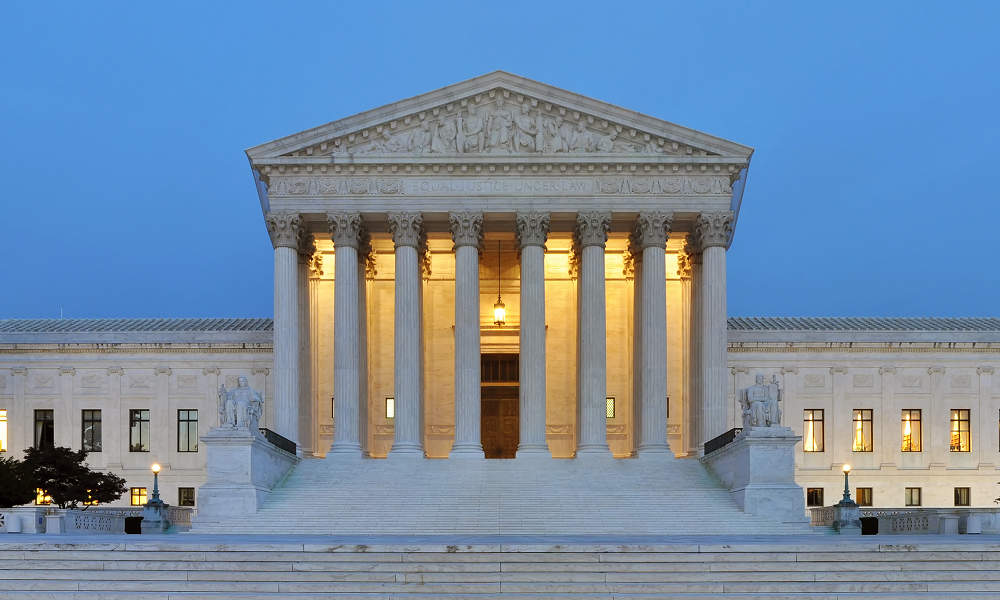Politics
Supreme Court allows Trump administration to enforce passport rule listing sex at birth

The U.S. Supreme Court has allowed the Trump administration to enforce a policy requiring that all new U.S. passports list an individual’s sex as assigned at birth, granting the government’s request to lift a lower court injunction that had blocked the rule.
The decision was issued on Thursday in Trump v. Orr. The Court’s unsigned order stayed a June 17 ruling by a federal judge in Massachusetts that had halted the policy nationwide, allowing it to take effect while the case proceeds through the appeals process.
The majority said the government is likely to prevail on the merits, writing that listing sex at birth “no more offends equal protection principles than displaying country of birth,” and that the policy merely reflects “a historical fact” without discriminating against any group.
The justices also said the injunction interfered with an executive policy “with foreign affairs implications concerning a government document.”
Justice Ketanji Brown Jackson, joined by Justices Sonia Sotomayor and Elena Kagan, dissented. In a lengthy opinion, Jackson criticized the Court for permitting “the immediate infliction of injury” on transgender Americans, arguing that the government failed to show any urgent need to implement the new rule.
Brown Jackson warned that the policy forces transgender people to use documents that could expose them to “harassment and bodily invasions” during travel.
The passport policy stems from Executive Order 14168, signed by President Donald Trump on January 20, which redefined sex in federal law as an immutable biological category based on reproductive anatomy at conception. It directed all agencies to adopt the same definition across identification documents and data systems.
The order marked one of several actions taken by the administration this year to roll back LGBTQ+ protections. Other measures have included reinstating the ban on transgender military service, restricting gender-affirming care, and halting federal funding for programs that reference “gender ideology.”
The case will now return to the U.S. Court of Appeals for the First Circuit for further proceedings. The stay will remain in place while the government’s appeal is pending and until the Supreme Court decides whether to hear the case on the merits.

-

 US News1 week ago
US News1 week agoJetBlue flight diverts to Tampa after altitude drop injures at least 15
-

 Breaking News2 days ago
Breaking News2 days agoAt least 3 dead, 11 injured after UPS cargo plane crashes near Louisville airport
-

 World4 days ago
World4 days agoStrong 6.3 earthquake strikes northern Afghanistan; felt across Pakistan
-

 World4 days ago
World4 days agoProtesters storm government building in Mexico after killing of local mayor
-

 World5 days ago
World5 days ago10 people stabbed on train in Huntingdon, England
-

 US News1 day ago
US News1 day ago5 firefighters injured in vehicle explosion in the Bronx, NYC
-

 US News1 week ago
US News1 week agoTrump says U.S. will resume nuclear weapons testing ‘on an equal basis’
-

 US News1 week ago
US News1 week agoDamage reported in Kilgore, Texas following tornado warning




